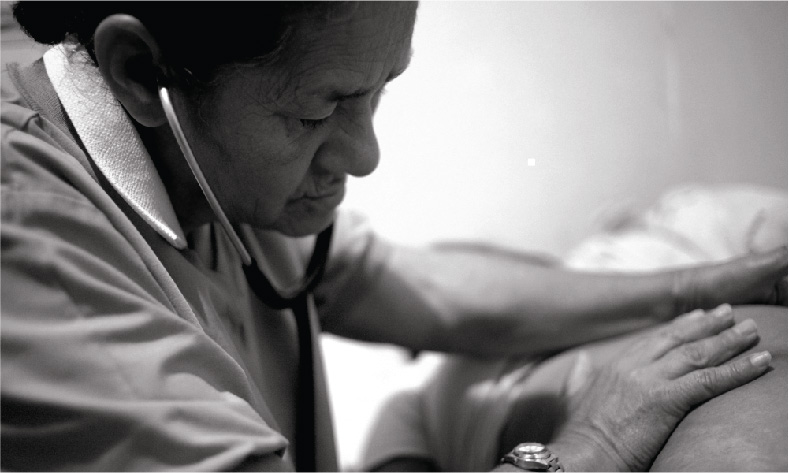ADDRESSING THE RISKS OF TEENAGE PREGNANCIES

Nicaragua has one of the highest adolescent fertility rates in the world. The consequences of adolescent childbearing include higher risks of pregnancy complications and maternal mortality (adolescent girls are up to five times more likely to die from complications of pregnancy than women in their 20s). Teenage pregnancies are also correlated with increased rates of infant mortality and malnutrition, lower levels of education for the mother and their children, and an elevated risk of poverty.
To make a contribution to reducing the risk for young mothers in Nicaragua, MAR started working with a charismatic community leader, Francisca “Panchita” Espinoza, advocate for women’s welfare and Director of the National Network of Casas Maternas. Espinoza was at the forefront of the Casa Materna movement in the late 80’s, a grassroots response to the growing number of mothers dying in pregnancy, during delivery and in the days following childbirth in isolated rural communities. Three decades later, these temporary maternity waiting homes continue to shelter at-risk expectant mothers until their babies are born. During their stay, mothers are monitored by health professionals and receive health education. They deliver in nearby hospitals or medical centers with skilled cared assistance.
MAR launched a project with Espinoza and the Casa Materna Cihuatlampa (CMC) in her hometown, Jinotega. This city of 50,000 and surrounding villages have some of the highest teenage pregnancy rates in the country, and many of those sheltered at the CMC are adolescents.
MAR provided funding to CMC to design and implement a community outreach program that focused on raising awareness about maternal, sexual and reproductive health among young people in the region. A midwife was hired to go into the community to ensure that girls who were already pregnant were receiving proper prenatal care, and 50 health promoters and youth leaders were trained and deployed to organize talks, video-forums and workshops in schools and the wider community.
The programme made a difference, according to Rina Rugama, MAR’s local project manager in Jinotega:
Under the Mothers at Risk program adolescent pregnancies have decreased. There are still cases of pregnancy, but they have been declining at a noticeable rate compared to previous years.
One of the youth facilitators, was 16 year-old Arielka Gissell Rodríguez Quintanilla:
I have been involved in activities aimed at supporting youth for a year now and I believe the work we are doing is very important. Young people are embarrassed by these issues but need information, and really need to be able to talk to someone. As a youth facilitator, I am there for them.
Building on the collaboration with the Casa in Jinotega, MAR also developed a partnership with another maternal shelter, Casa Materna Mary Barreda, in northern Ocotal. The Casa in Ocotal shelters 200-400 at-risk expectant mothers every year, including many adolescents and victims of gender violence from across the State of Nueva Segovia.
MAR funded essential repairs to the Casa in Ocotal following Hurricane Mathew and provided a grant for an organizational and needs assessment to enable the Casa staff to improve the care they provide and meet the demand despite limited resources. The assessment identified immediate and long-term needs and provided recommendations to help the Casa function more effectively.
These interventions were an important opportunity for MAR to help catalyse community-based initiatives aimed at helping at-risk mothers in Nicaragua. Every day is a new challenge at the Casas, but as Francisca says, saving lives is the reward:
“Every woman who leaves the Casa with her baby in her arms and a safe delivery behind her is a victory. That is our daily reward, it’s what keeps us going despite the challenges…”
